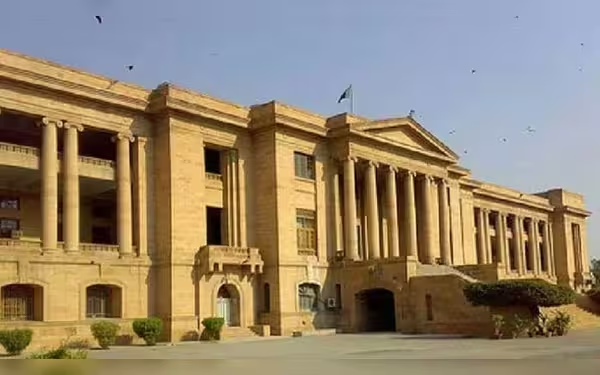Thursday, July 4, 2024 06:25 PM
Sindh High Court Ensures Transparency in Auqaf Properties Management
- Court instructs detailed report on urban and agricultural properties
- Emphasis on separate accounts for each shrine or educational institution
- Focus on transparency, accountability, and competitive auction procedures
 Image Credits: thenews
Image Credits: thenewsThe Sindh High Court directs the Auqaf department to provide detailed reports on properties, emphasizing transparency, accountability, and competitive auction procedures for public welfare.
The Sindh High Court has taken a significant step in ensuring transparency and accountability in the management of properties under the Auqaf department. In response to concerns raised in a petition regarding land allocation to a private educational institution, the court has instructed the Auqaf secretary to provide a detailed report on urban properties and agricultural lands leased or rented out in the past ten years.
The court's directive includes a demand for a comprehensive record of all properties, such as agricultural lands, shrines, and details of Zakat received and distributed. It has expressed apprehension over the income from Waqf properties being deposited into the provincial government's account, emphasizing that these lands are intended for public welfare.
The Auqaf secretary has assured that urban and agricultural properties were leased through public auctions and has been given time to furnish details of properties leased in the last decade. The court has further instructed the secretary to establish a policy for separate accounts for each shrine or educational institution in different districts, with interest accrued from these funds to be utilized for scholarships, Sufism academies, and shrine maintenance.
With over 3,000 properties under the Auqaf department, including commercial properties, madrasas, and rest houses, the court has emphasized the importance of honoring the original donors of the donated agricultural lands, totaling more than 11,000 acres. Specific lands dedicated to education in Tando Allahyar and Pithoro Taluka have been highlighted.
Plans for establishing academies at various locations are in progress, with pending approvals for funding allocations. The court has directed the chief secretary to expedite these approvals and stressed the need for displaying property details on official Auqaf websites for public access. Addressing illegal possession of Auqaf properties, the court has instructed the Board of Revenue to expedite the mutation process to prevent future disputes, emphasizing transparency and competitive auction procedures for all properties under the Auqaf department's jurisdiction.
The Sindh High Court's directives aim to ensure the proper management and utilization of properties under the Auqaf department, emphasizing transparency, accountability, and adherence to the charitable objectives set by the original donors. By implementing these measures, the court seeks to safeguard the interests of the public and future generations who benefit from these dedicated properties.













